A guitarist's guide to getting more out of your band rehearsals
We take a deep dive into our band rehearsal best practices and the common mistakes you should be avoiding as a guitar player
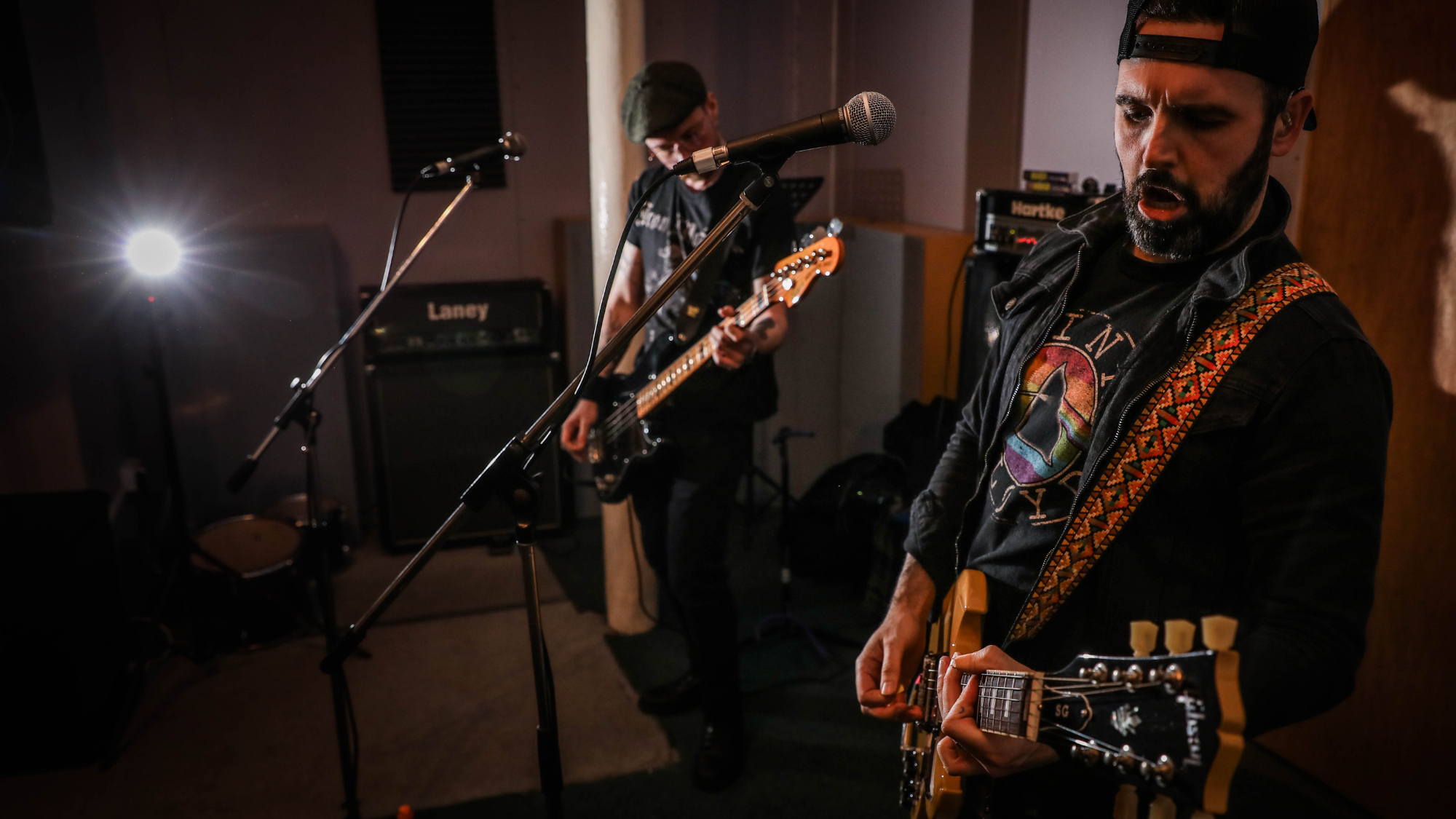
Want all the hottest music and gear news, reviews, deals, features and more, direct to your inbox? Sign up here.
You are now subscribed
Your newsletter sign-up was successful
The rehearsal room is often considered a sacred place where a band hones their craft, developing fragments of ideas into masterfully composed songs, but in reality, rehearsal spaces can feel chaotic, unorganised and, well, a bit of a mess.
Instead of each band member coming together as a unit, sessions can often dissolve into a battle of volume and gain, where nothing really gets done despite the best of intentions. Well, if this is how your band practices go, you're not alone, we've all been in this situation – but hopefully, with a little guidance, you can get your band practices back on track.
Now, I've been playing guitar for over 20 years, and I started my first band with my brother and a few mates at just 12 years old! I've come a long way from that trashy punk band, not only maturing as a player, but also as a band member.
I spend the vast majority of my time in rehearsal rooms, and over the years, I've discovered how to make sure a session goes as smoothly as possible. So, with that in mind, here are my top tips to help you get more out of your band rehearsals.
1. Show up prepared!
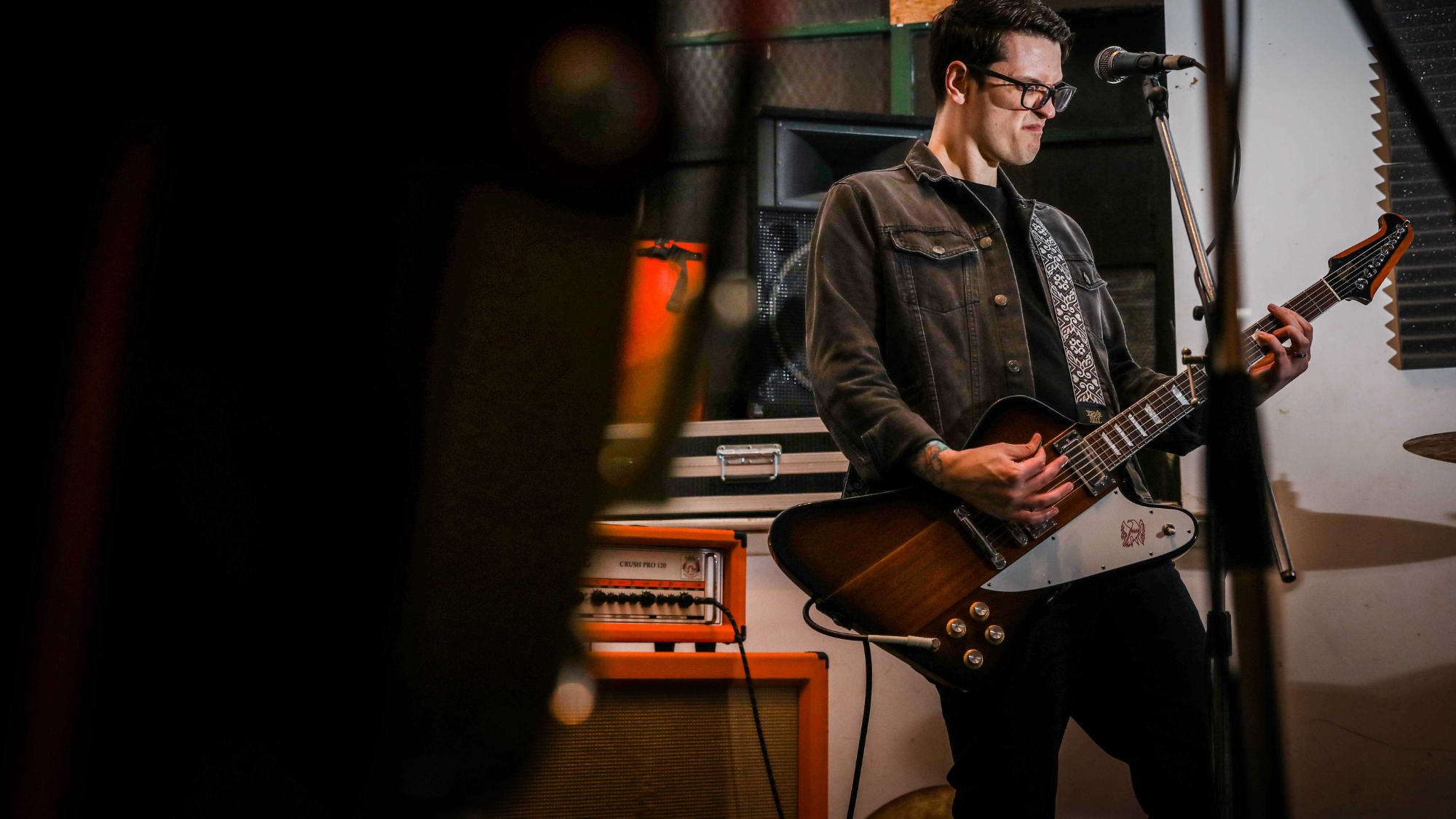
This may sound like an obvious one, but you'll be surprised by how many times I've shown up to a rehearsal and there's someone in the group that doesn't know the songs.
The practice space isn't for learning songs; it's for fine-tuning the arrangement as a band and getting it tight – so do everyone a favour and learn your parts at home before you enter the practice studio. Not only will this save you time, but it's a sign of respect to your fellow bandmates who have all put in the effort to learn their parts, solos and lyrics.
Especially in cover bands, members who routinely show up unprepared don't tend to last very long in the project, so it really does pay to put in the work ahead of your rehearsals.
Want all the hottest music and gear news, reviews, deals, features and more, direct to your inbox? Sign up here.
2. Keep your levels in check
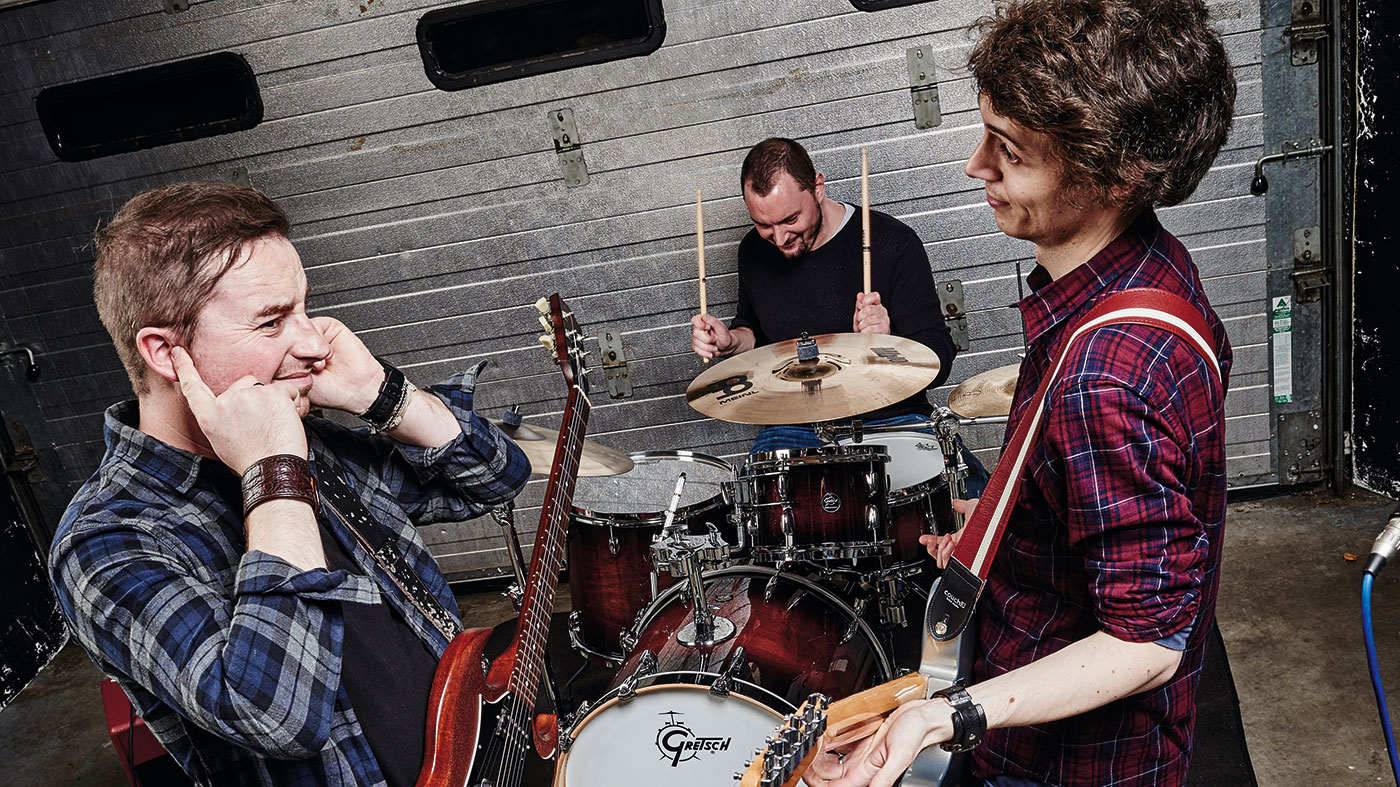
WE SAID KEEP YOUR LEVELS IN CHECK! Okay, we get it, playing loud feels great and if you are used to practicing at home, it can be tempting to turn up when you get into a large rehearsal space, but the excessive volume could be having a detrimental effect on the quality of your practice.
Remember, you are part of a band – it isn't all about the guitar. Take time at the start of your rehearsal to balance the levels of each instrument. I tend to do this by using the drums as the benchmark. In a practice studio, the drums won't be mic-d up, so it's important to balance everyone else to them, as they can't turn up!
Start by having your drummer play his part, then bring in the bass until it compliments the level of the kit. Next, add the guitars and, lastly, the vocals. This approach should result in an even mix where you can hear all the instruments equally.
3. Have a plan before you start

One surefire way to ensure your practice session runs smoothly is to have a well laid out plan before you start. I typically begin each rehearsal by detailing what I'd like to achieve by the end of the two hours; this way, every member of the band is on the same page and knows exactly what is expected of them throughout the practice.
I'll typically start the session with a few run-throughs of songs we are familiar with to get warmed up and tweak amp settings and sounds. Then, I'll maybe move to newer tracks or more difficult sections we need to concentrate on. We then tend to finish on something fun and uplifting at the end of the rehearsal.
Obviously, how you structure your session is totally up to you and the dynamic of your band, but as long as you have a basic plan in place, you should have a more focused rehearsal with less aimless jamming.
4. Work on your communication
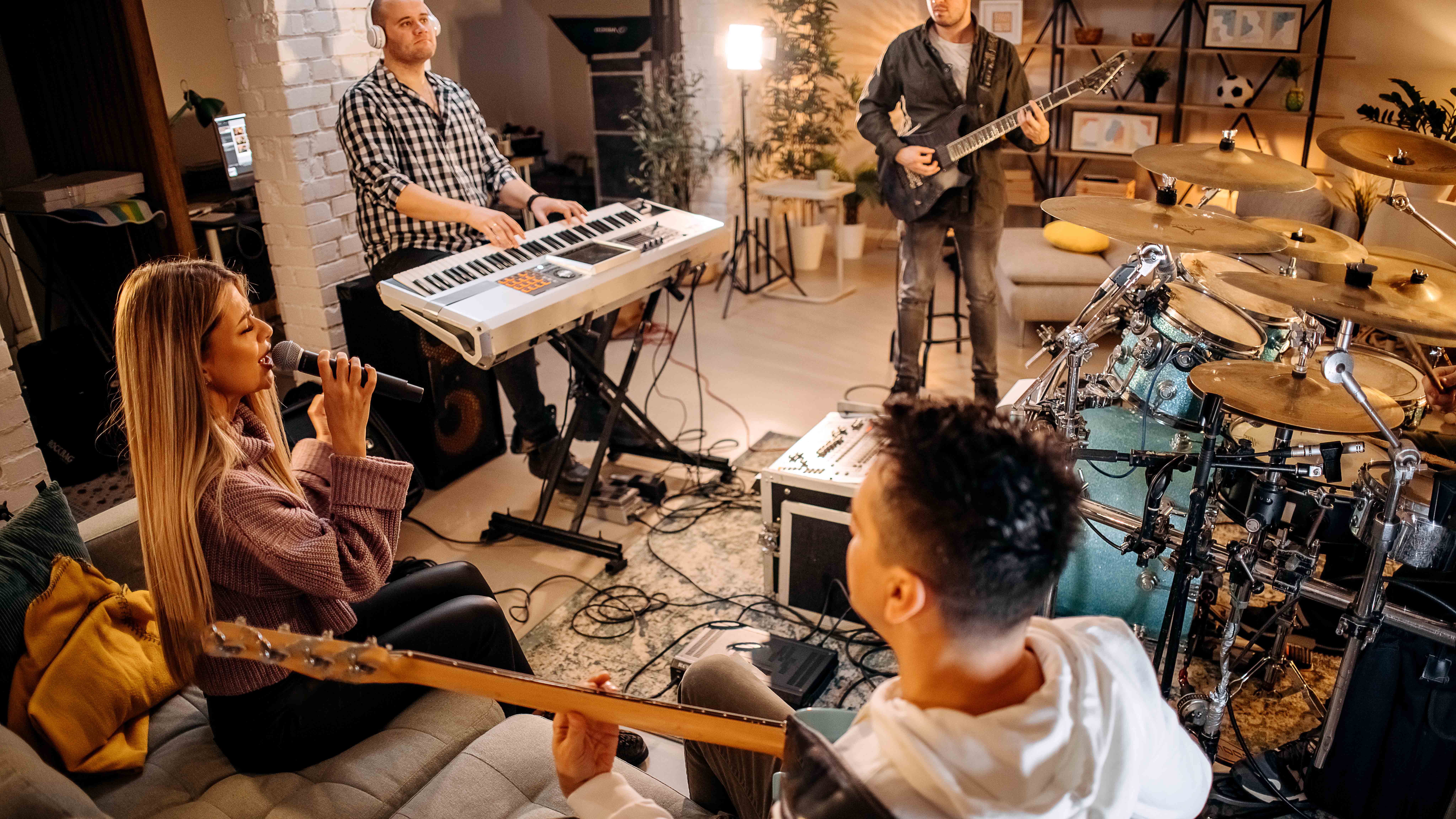
Now, this is a big one. You need to learn how to communicate effectively with your fellow bandmates. Not only will this help you get your ideas across more effectively, but it will also drastically reduce inner-band conflict and even eradicate arguments altogether.
Typically when I've had an argument in a practice studio, it's not because of what's been said, but rather how it was said. When you work in a creative setting, it's easy to take things to heart. When a band member doesn't like a part you've written or a new riff idea you've had, it's easy to take it personally. On the flip side, it's sometimes difficult to articulate what you don't like about something, without sounding too negative or condescending.
So, my advice is to be mindful of other people's feelings and try and be constructive with your criticism. Simply saying "I don't like it" won't cut it. Offer alternatives and build on the ideas being presented.
5. Don't play when other members are trying to speak
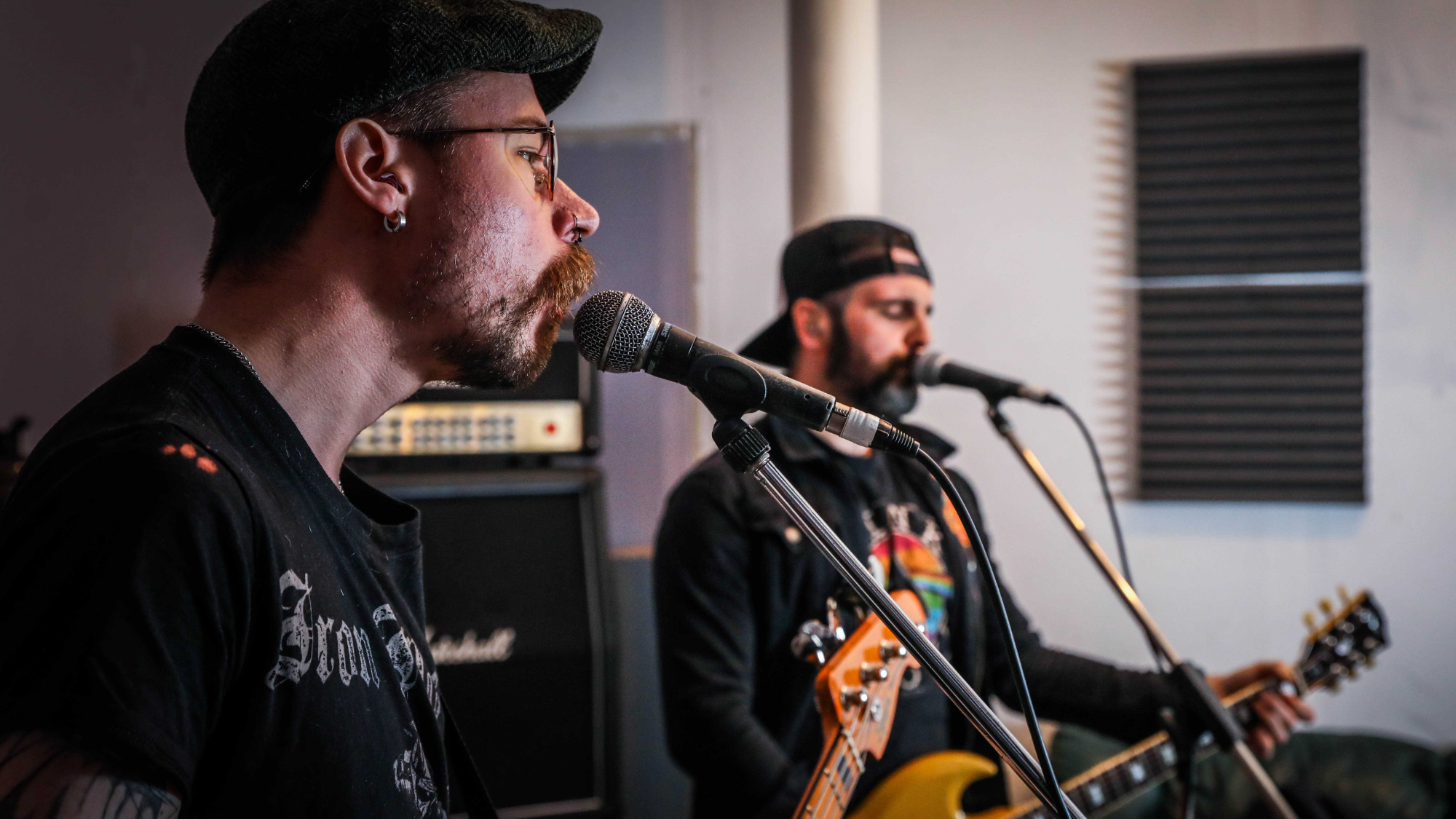
Okay, this one is really about good manners. If people are talking and working through a musical problem, please don't start playing! While it's easy to get bored and start running scales and your best blues licks, this isn't the time nor the place.
Keep your instrument muted and give your bandmates time to work on the problem at hand – you'll get a chance to play in a minute!
6. Rehearse with your full live setup
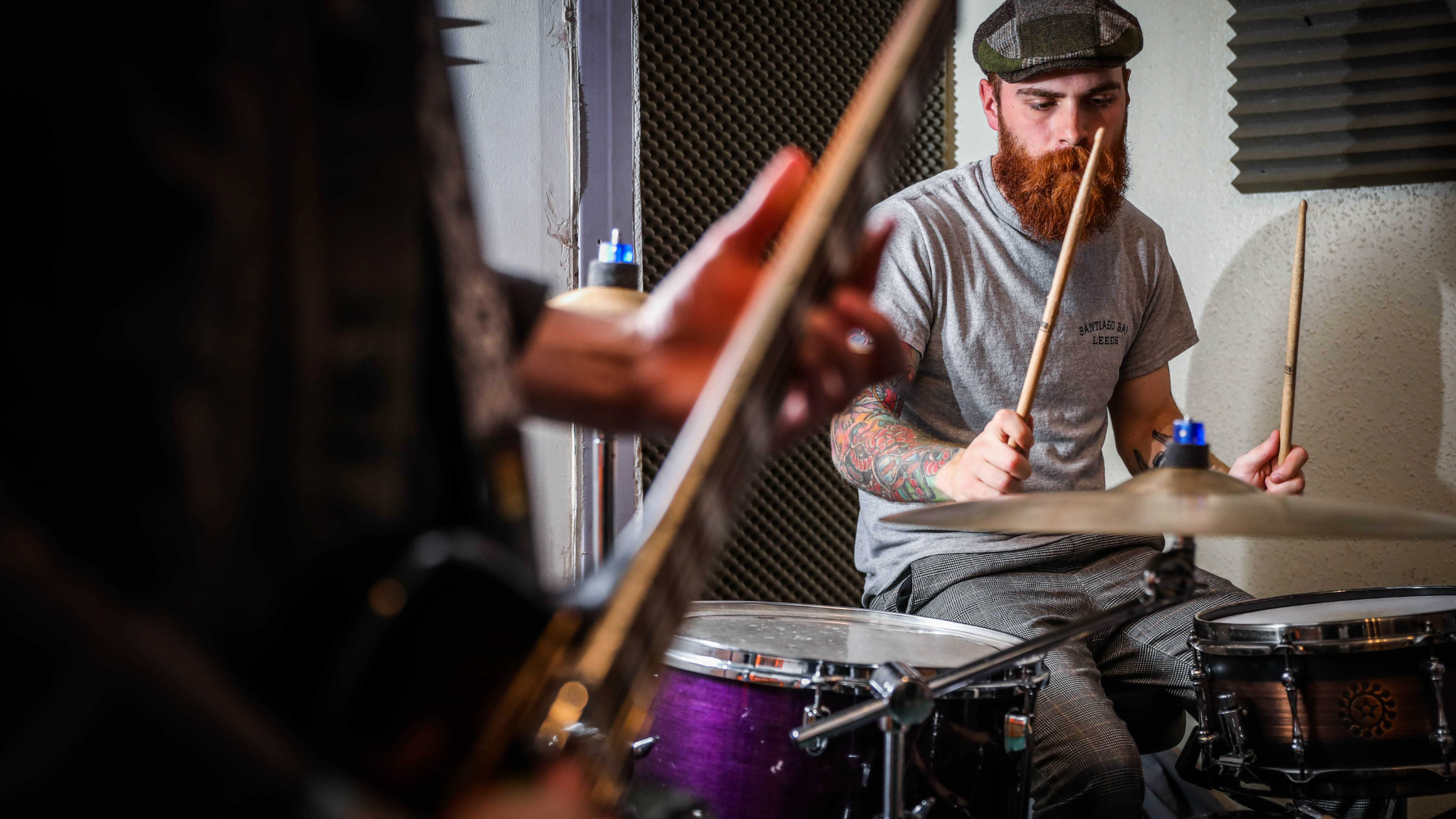
These days, rehearsal studios come fully equipped with a myriad of gear and it can be tempting to rock up with nothing more than your guitar and pedalboard, but you really should be practicing with your full live rig – especially if you have a show coming up.
It really pays to know your gear inside and out – and there's no better way to do that than to use it as much as possible. Whenever I can, I'll use exactly what I play live in the studio. That way not only can I finely-tune my sound, but my bandmates can adjust their equipment to better match mine – creating a more unified sound as a band.
7. Take breaks
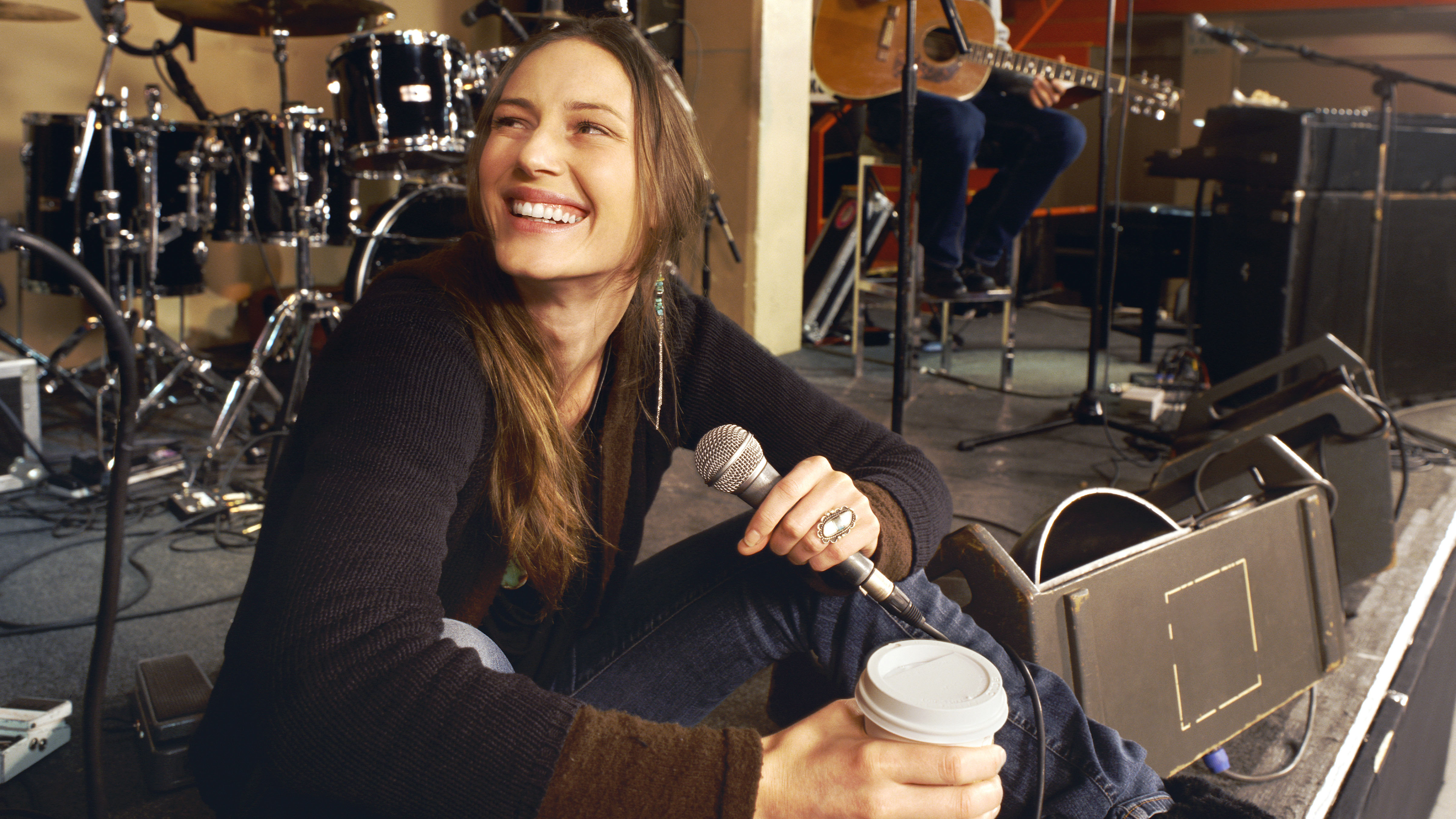
Sometimes you just need a break. Taking 15 minutes away from the pounding drums and deafening guitars can help you gain some perspective on what you are working on and stop you from getting fatigued.
In a 2-hour rehearsal, I'll typically take a 15-minute break in the middle, but take as much or as little time as you need.
8. Wear ear protection
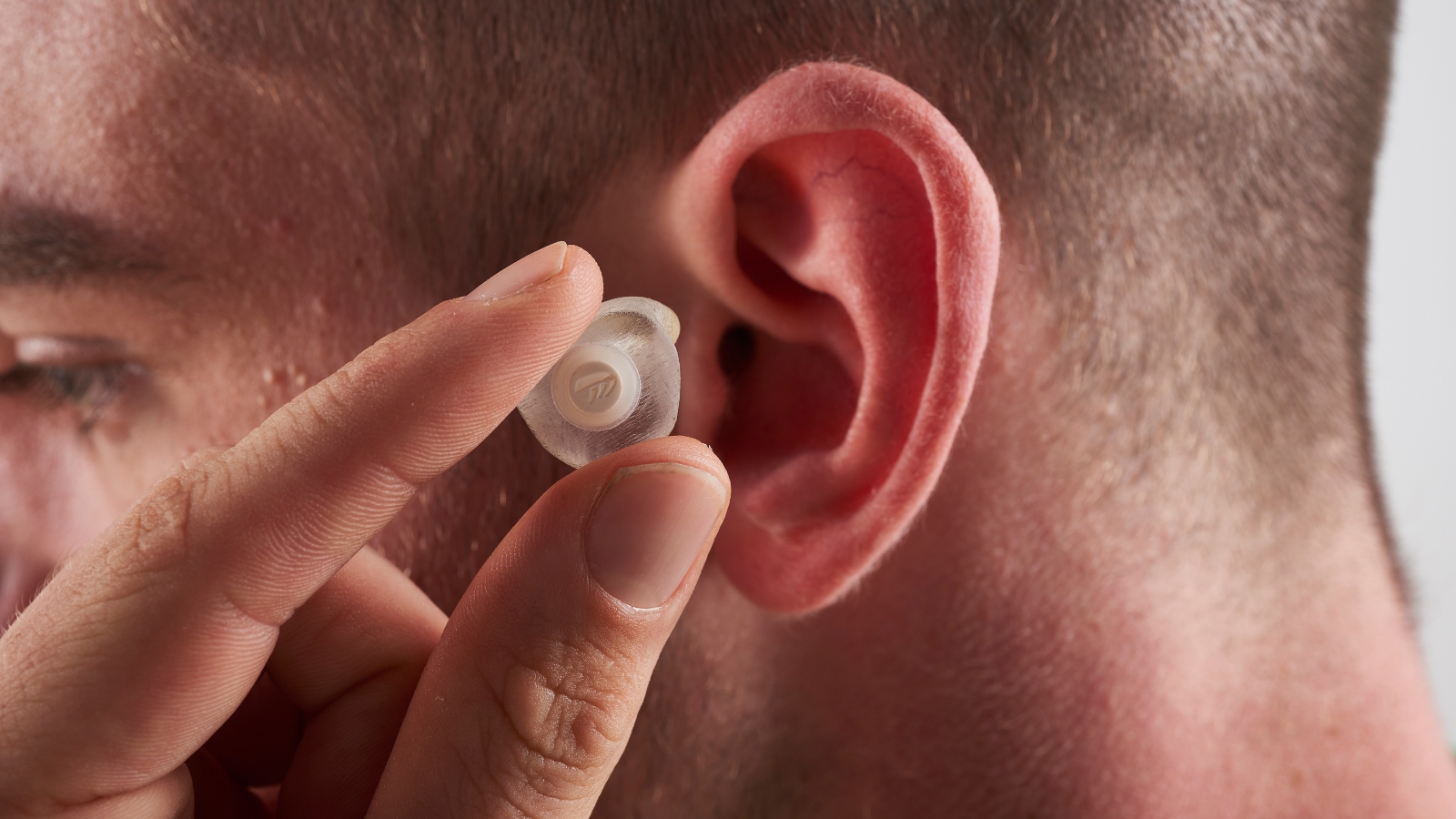
As musicians, our ears are the most essential piece of equipment we have, so maintaining them is vital. Despite how important our hearing is to our profession, it's all too common to see players in tiny practice rooms with amps at wall-shaking volumes and no hearing protection. So please, for the love of God, wear earplugs!
As well as helping you safeguard your hearing, wearing earplugs in a practice studio can also help with hearing your bandmates more clearly and even make pitching those backing vocals a little easier.
Below you'll find our top tips for becoming a more well-rounded guitar player
- Avoid these 10 pedalboard mistakes every guitarist makes
- Sound better live by sidestepping these 10 PA mistakes every band makes
- Here are the 9 essential guitar gear tips for a better live performance
- ...And our 8 guitar tips to help you sound and play better for free
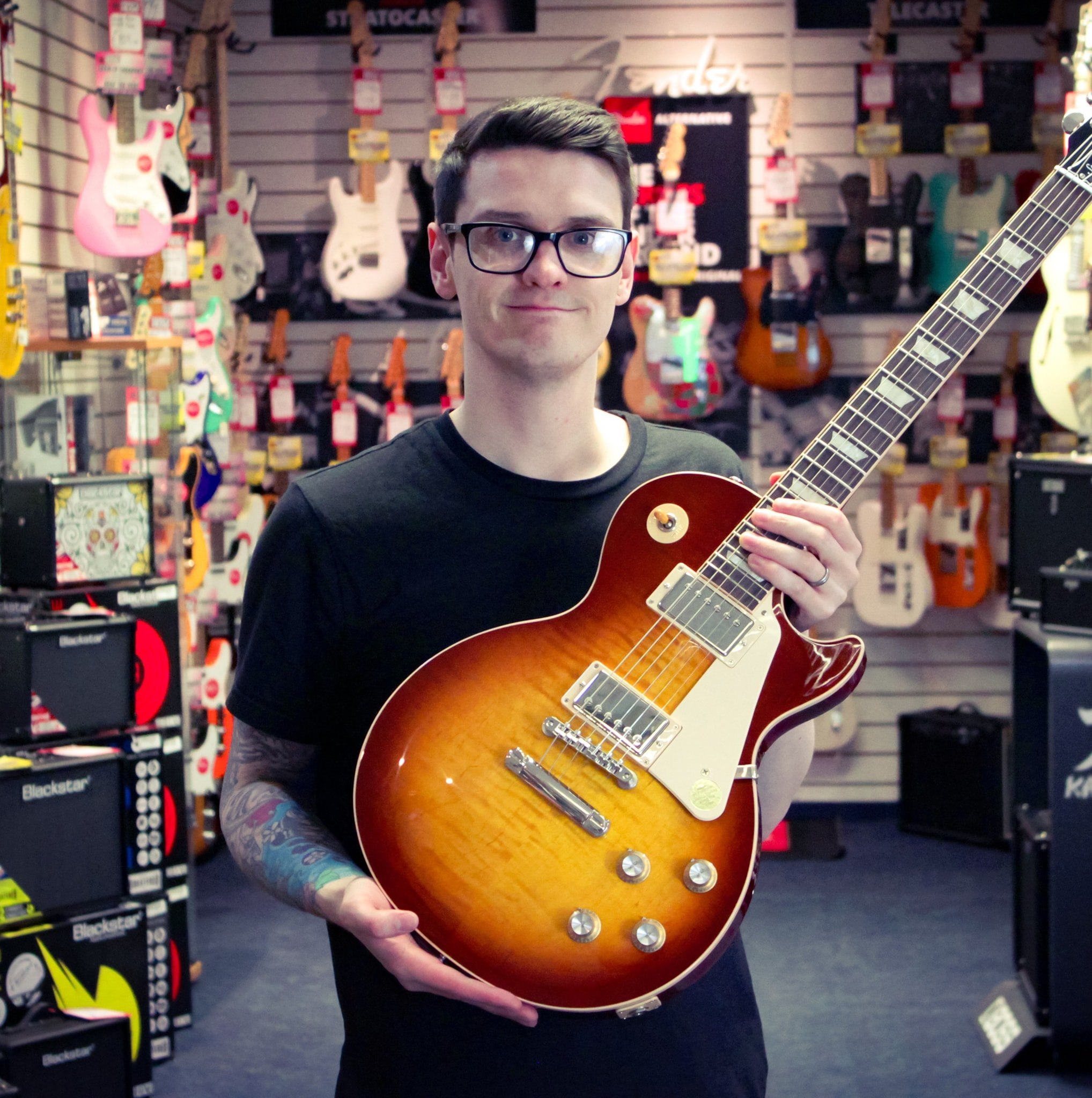
I'm a Senior Deals Writer at MusicRadar, and I'm responsible for writing and maintaining buyer's guides on the site. As part of my role, I also scour the internet for the best deals I can find on gear and get hands-on with the products for reviews. My gear reviews have been published in prominent publications, including Total Guitar, Guitarist, and Future Music, as well as Guitar World.com. I've also had the privilege of interviewing everyone from Slash to Yungblud, as well as members of Sum 41, Foo Fighters, The Offspring, and many more.
In a previous life, I worked in music retail, selling everything from digital pianos to electric guitars. I'm also a fully qualified sound engineer who holds a first-class Bachelor's degree in Creative Sound Production from the University of Abertay.